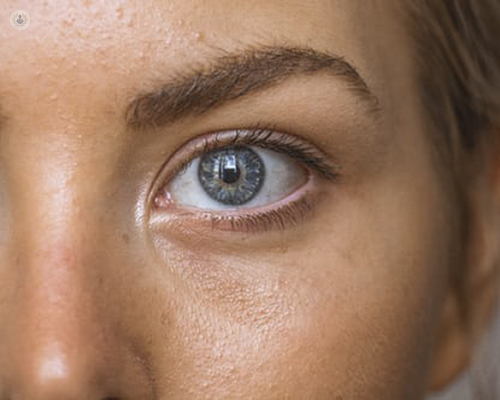Vitrectomy surgery: what to expect
Escrito por:Vitrectomy is a type of eye surgery that is used to treat various problems with the retina or fluid in the eye, which is called the vitreous. If your eye has become cloudy, bloody or filled with floaters then your eye specialist may recommend that you have this procedure. We’ve asked one of our expert ophthalmologists, Professor Tom Williamson, all about vitrectomy so that you know exactly what to expect.

What is vitrectomy surgery?
During the surgical procedure, the jelly of the eye that fills the eye cavity is removed to provide better access to the retina. The eye does not need the vitreous jelly. It will fill up space with a watery fluid.
How will I be prepared for vitrectomy surgery?
You may be offered either general anaesthetic (GA) or local anaesthetic (LA).
You will be asleep for a GA and will, therefore, have the option to stay in the hospital for one night.
Having a LA involves injections around the eye to anaesthetise the area. This is similar to having dental work where the dentist uses an injection to “freeze” the tooth. You will be awake during the operation but will not be able to see what the surgeon is doing. The advantage of LA is that you can go home sooner after the operation.
Complications from LA are rare. They include haemorrhage and injury to the eye from the needle. Some operations are considered too long for a LA and therefore GA will be performed.
Is vitrectomy painful?
No. Patients are under anaesthetic when surgery is performed.
What happens during the procedure?
Vitrectomy is performed through three small incisions which close usually without stitches. The operation takes approximately one hour to perform.
A few patients need a gas bubble to support the retina, which remains in the eye for a few weeks. At first, the gas obscures your vision but gradually over a few weeks you will notice a black line travelling downwards in your vision.
This is the edge of the gas bubble as it gets smaller in size.
Eventually, the bubble breaks up into smaller bubbles and disappears.
You must not travel by aeroplane whilst you have a gas bubble in the eye.
What is the recovery like?
Recovery of vision is usually slow after retinal surgery. It can take two to six months for the eye to recover from the surgery.
Are results immediate?
The success rate of the surgery depends upon the reason for the operation.
Professor Williamson is an expert in treating retinal detachment, macular hole and cataracts. You can book an appointment to see him in his clinic via his Top Doctor’s profile here.


